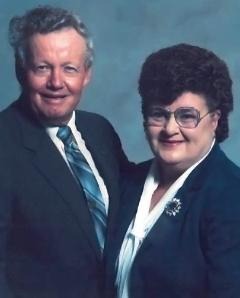The Scotts Leave a Gift That Keeps Giving

Paul and June Scott
Elm Crest Retirement Community in Harlan, Iowa, recently became the benefactor of a tremendous gift. The estate of June Scott, wife of the late Paul Scott, recently contributed more than $676,000 to five entities in the western Iowa county of Shelby, including more than $135,000 to Elm Crest. June was a resident at Elm Crest during the last year of her life and her mother, Etna Swensen, was also a past resident. June's generosity, however, came from a deeper place than her love of Elm Crest.
"Paul and June were great stewards of their farming operation and their finances," says Rowland Burton, the executor of the estate. "It's a great contribution to these organizations which will allow them to grow and expand their endeavors. ... They both felt giving money locally was very important. This was their way of returning back to the communities the rewards of their life."
June and Paul were both born and raised in Shelby County. They were married in June of 1948 at Immanuel Lutheran Church in Harlan. After the wedding, Paul and June moved to their Center Township farm two and half miles east of Harlan where they remained until 1988. Shortly after Paul's retirement, the Scotts built a new home east of Harlan. Paul went to be with the Lord on Nov. 24, 1999. June joined him on May 18, 2010; both are buried in the Jacksonville Cemetery.
"Their gifts are a wonderful testament and legacy to the five different organizations," Rob Hall, the Scotts' attorney, says. "The Scotts' gifts encourage others to give back to their communities."
Information contained herein was accurate at the time of posting. The information on this website is not intended as legal or tax advice. For such advice, please consult an attorney or tax advisor. Figures cited in any examples are for illustrative purposes only. References to tax rates include federal taxes only and are subject to change. State law may further impact your individual results. California residents: Annuities are subject to regulation by the State of California. Payments under such agreements, however, are not protected or otherwise guaranteed by any government agency or the California Life and Health Insurance Guarantee Association. Oklahoma residents: A charitable gift annuity is not regulated by the Oklahoma Insurance Department and is not protected by a guaranty association affiliated with the Oklahoma Insurance Department. South Dakota residents: Charitable gift annuities are not regulated by and are not under the jurisdiction of the South Dakota Division of Insurance.

